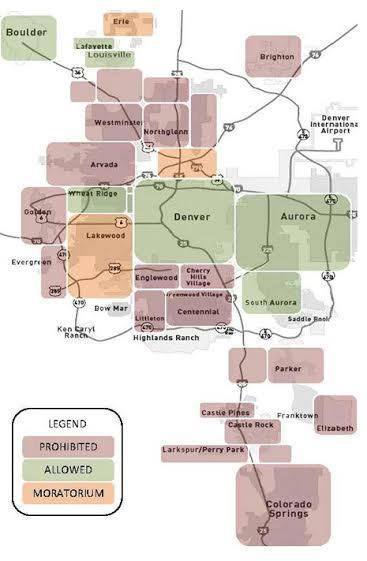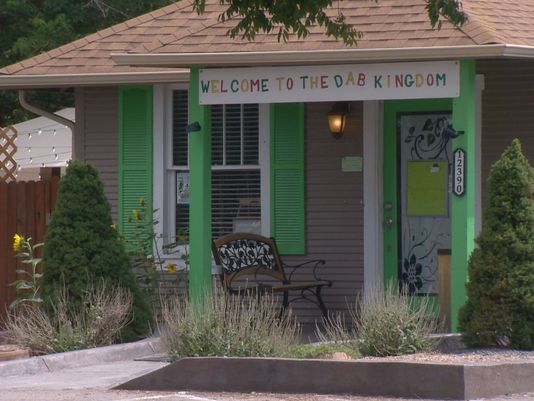At least 20 small children have died nationwide because of their parents’ or caretaker’s marijuana usage, since Colorado and Washington voted to legalize pot. It began in November 2012, just over two years ago, and it continues to happen in 2015. Four of those deaths occurred in Colorado, three in California.
It’s high time that a parents’ marijuana usage becomes part of the national discussion of child custody and visitation. It’s hard to understand why Doreen Reyes of Palmetto Bay, FL, had to allow her son, 4-year old Javon Dade, Jr., overnight visitation to the father who used marijuana, cocaine, had several drug arrests and kept pit bulls. The last time Javon spent the night with him was in August, the time that he died.
Children’s deaths — involving parents whose marijuana use interfered with parenting — have occurred in every corner of the country—from Vermont to Florida, from Michigan to Texas, from Oregon to Arizona, from Pennsylvania to Oklahoma. The more pot promoters say that marijuana is harmless and justify their growing industry, the more neglected and abused children there will be; some will suffer and die — unnecessarily.
Marijuana users—if addicted– have a tendency to lose a sense of time and be neglectful parents, or in some cases, abusive. Unfortunately, in many cases, both parents are drug abusers. Many medical marijuana “patients” prefer to convert pot into hash oil. When these “patients” use butane or other flammables, they should not be given custody and should only be allowed supervised visitation. Too many fires have resulted in children treated for burns.
Children who died in Fires, Hot Cars
Levi Welton, Kyheir and Dyheir Arthur, Andre Sosa-Martinez and Lileigh Kellenears died in fires. Levi Welton died in a fire while his parents used pot with friends in another room. Sosa-Martinez’s mother was also home when he died, but she was too stoned to notice sooner, or to react. In the other three deaths by fire, the parents had left the children home alone while the parents toked.
In Phoenix, a father smoked pot and forgot about time, as his three-month old son died in a hot car. In El Cajon, CA, last summer, a child died because a couple left their 4-month child, while the mother smoked pot with her brother nearby. In Kansas, it was a 10-month old baby girl who died in a foster father’s care while he bought marijuana, watched Game of Thrones and left her in the car.
Jamison Gray, Tyler and William Jensen, Kadylak Poe Jones and Giovanni Soto died in overheated cars. With the passage of time and their parents’ marijuana usage, they were forgotten.
Jase Colby, Gabriela Guerrera, Natalye Price and Andrew Prior died because they were victims of physical abuse….and their parents were marijuana users. Kamari Taylor died because of his mom’s violent boyfriend, who left the child alone as he went out to sell pot. Paxton Stokes’ death is a little more mysterious, but it was probably the marijuana-using mom’s boyfriend who abused him.
Last year in California, 16-month old Harley Bradford and 33-month old Jason Bradford died by drowning while their stoned mother slept and ignored them. She was staying at the home of a friend who had a marijuana grow and hash oil lab. Although the boy tried to wake her, she ignored her son for many hours only to find both children had gone outside and drowned in a swimming pool. The saddest part is that relatives were going to take over custody of the children the next day.
In Vermont, the mother of Saunder Coltrane River Gilruth, smothered him to death while he slept. She admitted to smoking pot and drinking the previous night. The mother smoked pot daily during her pregnancy, and her physician knew it. The infant was only 27 days old, and was at risk because of his very low birth weight. When alcohol or other drugs add to a parent’s impairment, it doesn’t minimize the danger of today’s high-strength pot.
These cases do not include the many children who have been put in harm’s way while their parents made butane hash oil, and caused explosions. Since November of 2012, at least two dozen children have been in homes, apartments or hotels where BHO fires occurred, in Colorado, Oregon, Washington, California and Montana. A tremendous amount of luck, and quick emergency services, have allowed these children to survive.
While the Press reports on the glamor of those in the marijuana business, young people and young parents have the wrong impression of marijuana’s risks. While everyone acknowledges that heavy drinking or 2nd-hand tobacco smoke are a risks for children, pot users are treated as celebrities. Thanks to Maureen Dowd’s expose in the NY Times, people have been warned to keep marijuana edibles from children.
However, where is the justice for these 20 children who died?
The Children Who Survive
Not all child abuse cases involving marijuana end in death. One recent case of child brutality involved a marijuana-addicted mom in Arizona. The mom has been arrested, and the little girl survives. In Florida, a man threw a crying 11-month old baby who suffered terrible injuries but is still alive. Another mother and her boyfriend in Florida smoked pot all morning and ignored the pleas of her 3-year old who was locked outside until a neighbor found him. The arrested mother claimed, “Marijuana should be legal anyways.”
In family courts, judges need to consider the extreme impairment that many marijuana users have – no matter how much they love their children. There should be requirements for drug testing, addiction treatment and follow-up which figure into custody orders. Child Protective Services (CHS) and Departments of Children and Family Services (DCFS) are in difficult situations.
The simplest way to cut down child abuse/neglect is not to legalize marijuana, legitimize its use and call it harmless. Our young people need better education about the harms of marijuana before they become parents. We also need to provide plenty of ways to get addiction treatment for the parents who need it.
As a nation, we are turning a blind eye to the damage marijuana users may present to their children. We need to recognize the poor judgment and the warped sense of time that marijuana users have. When marijuana use has been combined with fires and hot cars, children die. See Child Abuse, Part 1 (neglect) and Part 2 (violence).









